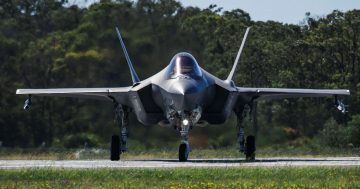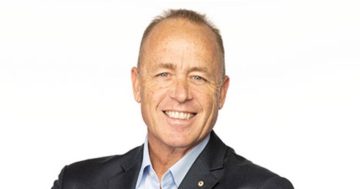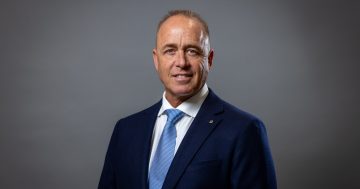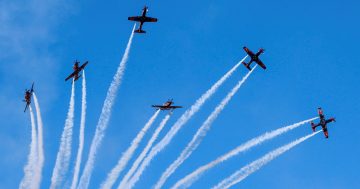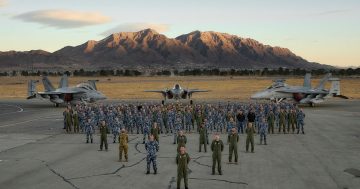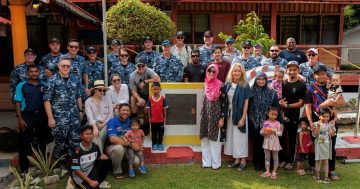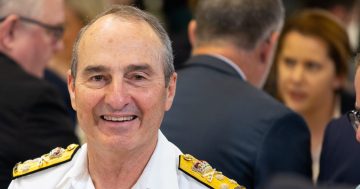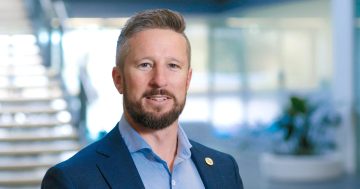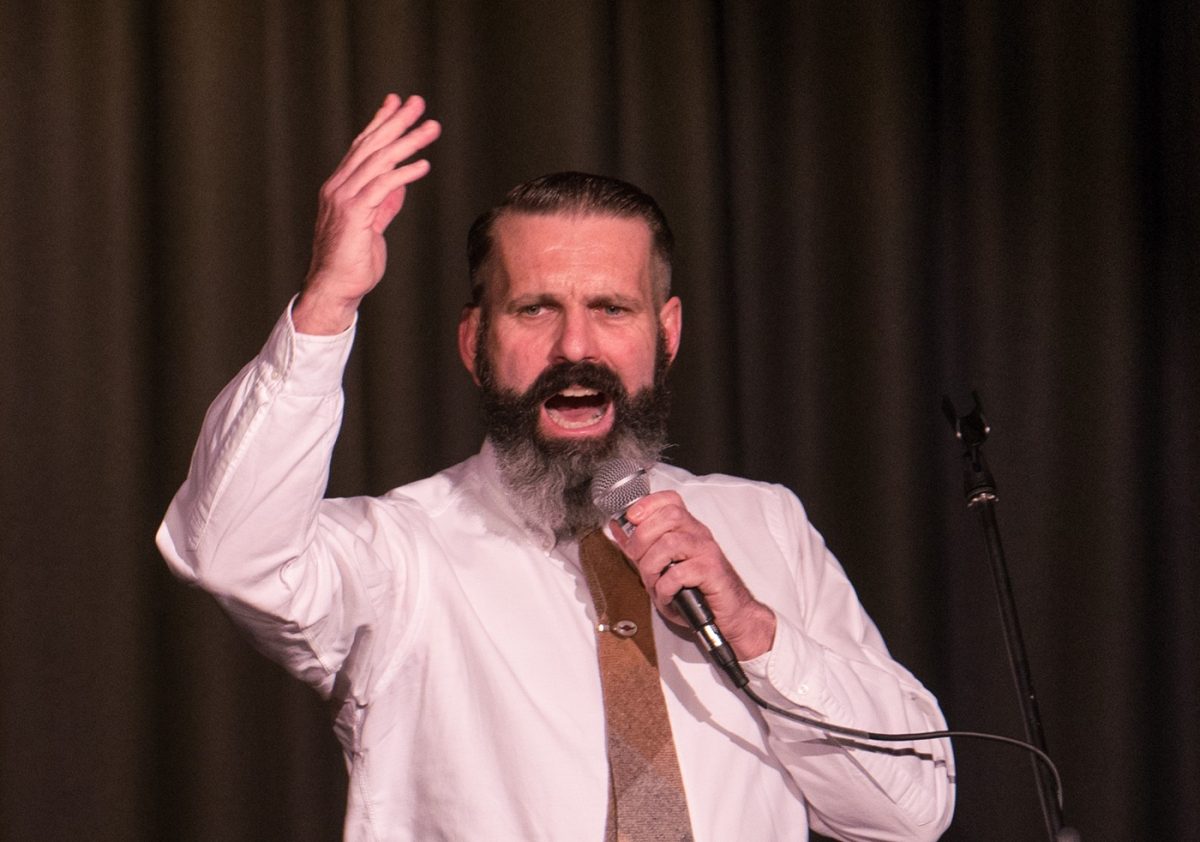
Chris Huet is an enthusiastic public speaker and poet with a passion for teaching. Photos: Chris Huet.
Welcome to the first instalment of a series of articles profiling veteran-owned businesses.
Chris Huet is a familiar face to many. More than a decade ago, he was a regular on the poetry slam circuit, performing in pubs and cafes around town and further afield and, in 2012, was crowned Australian Poetry Slam Champion.
But with his long beard and gentlemanly dapper attire, few people would realise Chris was once a Royal Australian Air Force fighter pilot and was in command of the Air Force’s premier fighter training unit.
Chris was born in Wagga Wagga, his family settled in Canberra and he was accepted into the Australian Defence Force Academy in 1987.
Upon graduation, Chris trained at Point Cook in Victoria and Williamtown near Newcastle and was selected in 1994 to fly the F/A-18 Hornet, at that time the RAAF’s premier combat aircraft.
After his first tour with a fighter squadron at Williamtown, Chris had an exchange posting with the Royal Canadian Air Force flying the CF-18 Hornet as an instructor.
This was followed by a posting to a project in Canberra, the only Air Force job he didn’t ask for.
“I was very fortunate that I got all of my job preferences except for the project job,” he said.
“But it turned out to be really fortuitous because I learned a lot about procurement and systems engineering and negotiation setting and leading negotiations.”
While working in the project office, Chris also completed a Master of Management Studies at ADFA.
After Canberra, he went back to the F/A-18 as Executive Officer of 75 Squadron at Tindal in the NT, then back to Canberra again for Staff College before receiving his Commanding Officer (CO) posting.
As CO of No 2 Operational Conversion Unit (2OCU) at Williamtown from 2004 to 2006, Chris was responsible for the oversight of RAAF F/A-18 Hornet pilot training and the RAAF’s equivalent of Top Gun – the Fighter Combat Instructor (FCI) course – now known as the Air Warfare Instructor Course (AWIC).
His time at 2OCU proved to be his last posting in the Air Force.
“I just didn’t think I’d get a better job than that one,” he said.
“That was one of the strong influences on why I got out then. There were some really, really competent and good people in 2OCU. Particularly on the technical side, they were all really dedicated and good people.”
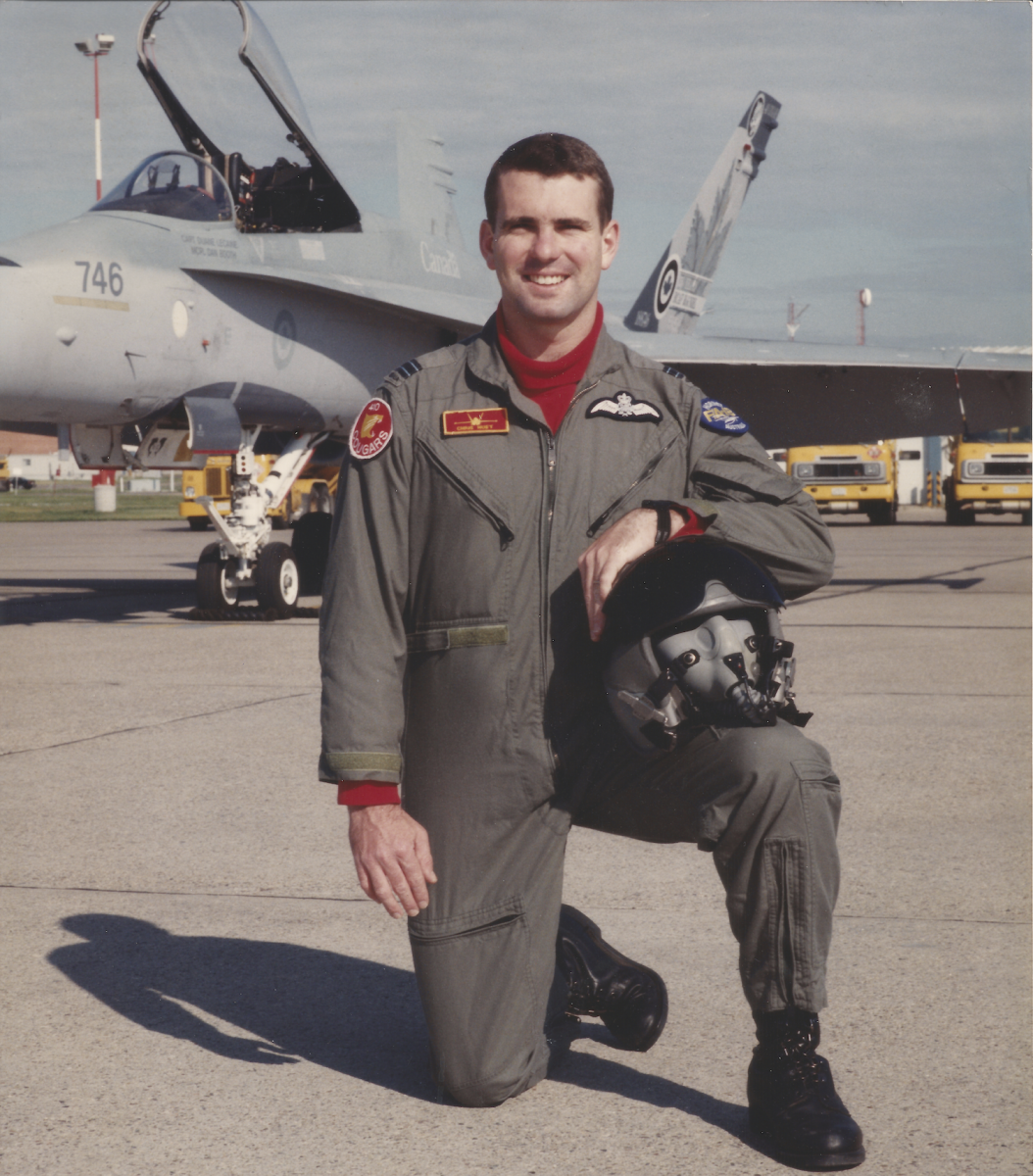
Chris Huet during his exchange posting flying CF-18 Hornets with the Royal Canadian Air Force.
After the Air Force, Chris initially worked for a small defence consulting firm in Canberra, where most of his time was spent in Air Force headquarters on the then-new F/A-18F Super Hornet acquisition.
“The government directed the Air Force to buy the Super Hornet the day I started. I happened to be at the right place at the right time.”
From the consulting role, he was approached by Lockheed Martin to do business development on a major training program, but he also started to explore his creative side.
“When I was in Lockheed Martin I had my day job, and then I had poetry, which was almost a completely different part of me,” he said.
“After Lockheed Martin, I started to think about what I would do next and I realised that it was the communicating side of all my work that I enjoyed the most.
“As an instructor in the Air Force and the adult learning aspect, and then being a consultant and understanding your clients’ problems, negotiating contracts, business development, teaching ideas … I wanted to bring all of those different forms of technical and business and creative communication into a more holistic thing.
“And I had the idea that I wanted to actually create a business where I helped other people communicate better.”
His company – Understood – is engaged to improve people’s communication skills.
“I work with people that often have a defence or technical background, often in engineering, but it might be IT, cyber, accounting, or even finance,” he said.
“These are people who may find themselves in a position where they’re responsible for motivating and coordinating a diverse range of people, but their current expertise lies in focusing on details or numbers or processes.
“Having been on both sides of the fence, it’s kind of perfect. I’m not unique, but I have the benefit of having worked in uniform and as a contractor on the Commonwealth side, plus I’ve worked in a consulting organisation and I’ve worked in industry as well.
“So, I’ve kind of sat on all sides of the table and seen it from all perspectives, and I’ve done some really good work both with defence and with industry on understanding each other.”
Apart from running his business, Chris does Defence Reserve work a couple of days a week, supporting students enrolled in the Australian Command Staff Course at the Defence College in Weston.
Outside of work, Chris is a member of the International Coaching Federation and the Australian Institute of Company Directors. He is also on the board of the non-profit Marion, the leading organisation for writing in the ACT region.
Original Article published by Andrew McLaughlin on Riotact.


